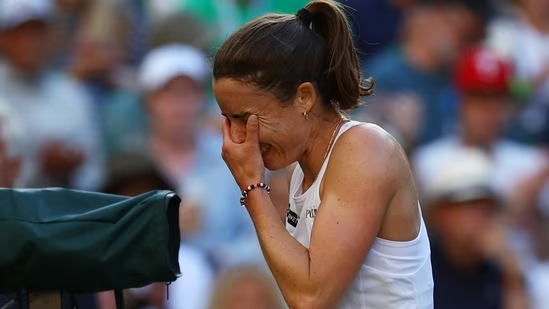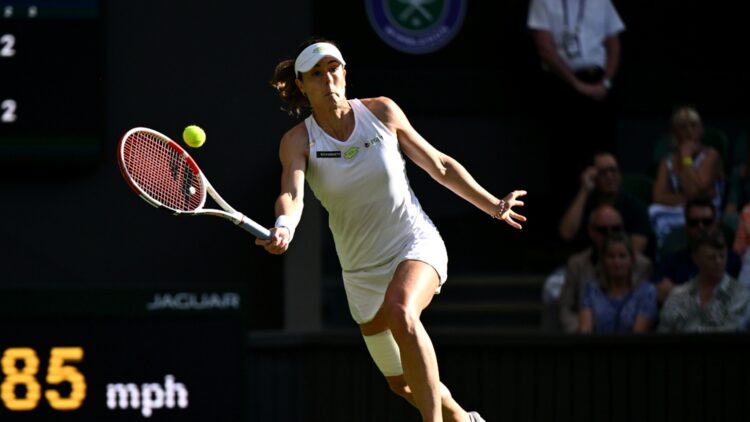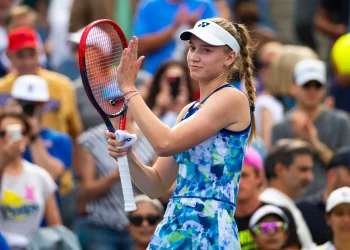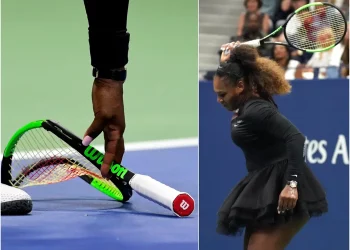French tennis player Alizé Cornet recently voiced her disappointment with the treatment of smaller players at Wimbledon. After her loss to Elena Rybakina, Cornet openly discussed the disparities between top-ranked players and those competing on the outside courts.
Cornet highlighted the significant contrast in ticket allocation between her Round One match and her Centre Court appearance. She revealed that for her initial match, she received only two tickets, which prevented her from inviting her best friend who was in the area. However, when she played on Centre Court, she was allotted 40 tickets. This disparity left Cornet feeling disheartened and neglected.
The biggest issue for me in this tournament was this: Alize

“The biggest issue for me in this tournament was the difference between playing on Centre Court today, where I had 40 tickets to give away, and my first-round match, where I had only two. Nobody could come,” expressed Cornet. She emphasized the need to give more credit to players competing on the outside courts, as the tournament owes its existence to all participants, not just the ones on the main stages.
Cornet also pointed out the contrasting treatment at the US Open, where even players in smaller matches are given up to six tickets, allowing them to share the experience with loved ones. She stated that other tournaments recognize the importance of supporting players at all stages, not solely high-profile matchups. Cornet concluded by saying, “The biggest gap is here at Wimbledon. In other tournaments, you at least get four, six tickets to invite your friends.”
Cornet’s remarks shed light on a broader issue within the tennis world—the overshadowing of smaller players by their more prominent counterparts. Despite her reputation as a formidable opponent who often defeats top-ranked players, Cornet feels that those she has bested are not adequately recognized. She advocates for acknowledging and appreciating the contributions of all players, as they collectively shape the tournament.
Wimbledon, known for its tradition and prestige, must address Cornet’s concerns. While upholding its status as a revered event, the tournament should strive for fairness and equal treatment of all participants. Allocating a reasonable number of tickets to players on the outside courts would allow them to share their journey with friends and family, enhancing their overall experience.
As Cornet bids farewell to Wimbledon, her words serve as a reminder that the essence of the sport lies not only in the big names and show courts but also in the hard work and dedication of every player. It is a call for the tennis community to reevaluate its priorities and recognize the invaluable contributions of all athletes, regardless of their ranking or the court they play on. Only then can the true spirit of the game be honored and celebrated.
Message Behind Alizé’s comments

Furthermore, addressing Cornet’s concerns would send a powerful message of inclusivity and appreciation for all players’ efforts. By bridging the gap in treatment between top players and those on the outside courts, Wimbledon can reaffirm its commitment to equality and fairness. This would not only benefit the players themselves but also enhance the overall experience for fans and spectators.
It is crucial to recognize that without the collective participation of players at all levels, Wimbledon would not be the iconic tournament it is today. Every player, regardless of their ranking, contributes to the fabric of the event and deserves recognition for their hard work and dedication.
Explore More:- Watch: Venus Williams Cries In Excruciating Pain After Nasty Fall









